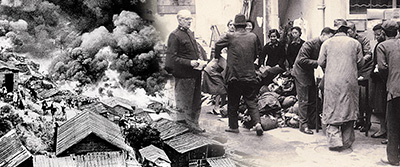-
Your shopping cart is empty!
The Salvation Army Recycling Programme
Since the 60s, The Salvation Army Recycling Programme has been collecting new / used clothes from the public. We collect and turn used items or excess items into useful things to help people by

Predecessor of The Salvation Army Recycling Programme
On 1953, the Shek Kip Mei Squatter areas fire made more than fifty thousands of residents in the area homeless. In order to provide clothing to the fire victims, Major Hans facilitated the transportation of donated materials from the "Parity Centre" at Tai Hang East to the disaster area to help these victims.
What is "Parity Centre"?
"Parity Centre" was started in Wanchai. Most of the donated goods were noble clothes from the Peak, such as evening dresses. Since the donated goods were not suitable for the refugees at that time, we sold them to some used-clothing stores. The price of each piece of clothing is about fifty cents, which could already make a family to have a proper meal at that time. Since then, Salvation Army will resell the proceeds to help the refugees in need.
Establishment of The Salvation Army Recycling Programme
The Salvation Army’s work on recycling materials was impressive after the fire, and citizens began to put their donation at the centre. In order to make good use of donated goods, the Salvation Army launched the Recycling Programmes in the 1960s to systematically handle the in-kind donation by the public.
Mission Statement:
As a steward of God for the protection of the world environment, The Salvation Army Recycling Programme is committed to assist vulnerable members of our community to restore their lives, encourage the public to reduce the waste and protect our environment, and offer the public these goods at affordable price through its Family Store; thereby assisting The Salvation Army to be more effectively mobilised for mission.
In-kind donation processing
After the in-kind donation transferred back to the warehouse of Recycling Programme, simple cleaning and testing of functions will be conducted by our professional team from Sorting and Pricing Department. At the same time, goods will also be categorised and distributed to the following main channels: